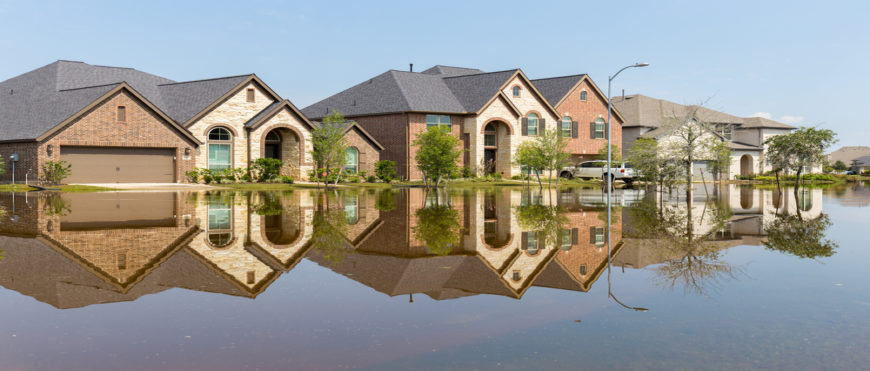-
- 10 May
Understanding Your Home’s Flood Risk
Few of us in Utah worry too much about flood risk. While we might experience occasional downpours that turn the streets into rivers for a little while, we’re certainly not experiencing hurricanes like the east coast.
However, floods do happen in Utah residences, and it’s not always due to a broken pipe. In fact, floods are the most destructive natural disaster (in terms of financial cost) for Utah. Hefty snowmelt from the mountains coupled with spring storms creates an excess of water with few outlets. Floods also can occur when reservoirs storing fresh water up mountain passes break and fail, creating a single cataclysmic cascade.
What makes floods especially scary is that there’s no way for individual citizens to stop it from happening. And while thoughtful construction and home placement can mitigate your risk, in the end most of us must simply rely on preparing ourselves in our homes, and trusting local officials to keep us safe.
Here are some things that you should know about your flood risk in Utah:
You Can Check Your Property’s Flood Risk
Government officials conduct surveys to determine where floodwaters will pool and where the greatest areas of risk are. These maps are available as a matter of public record, and often used to determine insurance rates for your home. You can check them yourself, either by going to your community’s building and planning department, or by looking online at Salt Lake’s Public Works site.
Prepare Ahead of Time
It’s always wise to set up your home so that you can survive and be safe even if a disaster happens. This includes having food and supplies on hand in case you’re home-bound for a while, due to a blizzard or a flood. Make sure you have flashlights, first aid supplies, an emergency radio, and any essential medication in a safe place as well. And make sure that you have the resources you need to open and prepare the emergency food that you have.
It’s also wise to have an emergency plan that you determine with your family or household. Know where to meet up if something goes wrong, and how to evacuate the building in case of a fire, earthquake, flood, or any other natural disaster.
Pre-Flood Precautions
If you have time to “batten down the hatches” before a flood, here are some things you should do:
Turn off all utilities at the main power switch, and don’t forget to shut off the gas valve.
Move valuables and things that will get damaged by water higher above ground level, if possible.
Give yourself extra water by filling up containers and water bottles ahead of time. You can also clean, sanitize, and fill up sinks and tubs in order to have a better reservoir of clean water.
The best plan is to move to higher ground, so if you have time, put your house in order and then get to a higher elevation.About the Author
electric-admin
Contact UsRequest Service
(801) 266-8041

